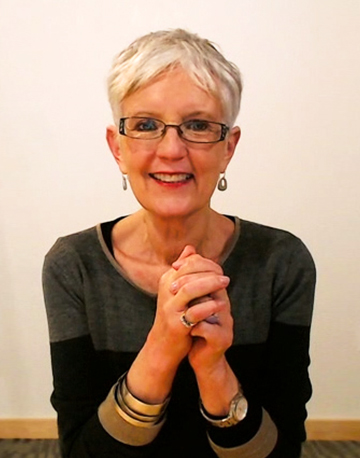How to Identify and Treat Dissociation (Even When It’s Subtle)
 |
with Peter Levine, PhD;
|
 |
with Peter Levine, PhD; Ruth Lanius, MD, PhD; Stephen Porges, PhD; Bessel van der Kolk, MD; Thema Bryant-Davis, PhD; Kathy Steele, MN, CS; Janina Fisher, PhD; Bethany Brand, PhD; Pat Ogden, PhD; Ruth Buczynski, PhD
Sign up for the Gold Package

This is a learning community for practitioners. We can’t wait to hear what you’re going to use with your clients
But please do NOT:
- seek advice for personal problems
- ask for referrals
- post links or advertise a product
- post about technical problems
Thank you for sharing a wealth of knowledge and in session techniques! I will be more mindful to continue grounding techniques as I continue assessing and taking it slow with the client.
A wonderful, practical training moment. Thank you for sharing your insights and experience. I am grateful!
Need to know after today’s presentation and information provided, how to go about the BEST METHODS to differentiate dx between PTSD, COMPLEX PTSD, and vs provisional dxs Personality Disorders of Narcissistic and or Borderline disorders Vs provisional dx of Dissociation Disorder ?
Awesome! I feel more confident now!
Thank you for the examples of assessment questions & possible ranges of responses, how tone of voice & empathy may be too much too soon. This was really helpful and I can think of immediate ways to apply this with a few of my clients. And thank you so much for talking about the need to pace, go slowly, CAREFULLY assess for DID diagnosis. Our own human nature can get in the way of our goals to support someone as they heal.
This session was incredibly informative for a client I am currently working with. The discussion on the window of tolerance and stepping back from being (too) empathetic when client is triggered was incredibly pertinent. Additionally, I appreciated the suggestions for grounding a client who has dissociated. This information will greatly enhance my session. Thank you
I have been wondering about differentiating individual trauma from trauma that whole groups or categories of people experience.
I need to slow down more especially since I work with children. This helps me to recognize when I need to back off. I also see abrupt changes in voice and behavior which I now recognize as dissociation.
I’m really enjoying this presentation format. User friendly for sure. I love these presenters and have been following their work, as well as practicing their strategies, for 20 years. I’m sad when younger therapists don’t get the kind of exposure in their graduate programs to these folks that would make them much more effective practitioners. Thank you for being ever-present in my professional life.
Thank you. Informative and insightful. It should prove helpful.
Much gratitude for that exploration ! Im in the field of Arts and wholeheartedly want to connect it with Trauma healing.
At the moment Im treating my childhood trauma of abandoment.
Your talk confirm my life experience of taking a step forward and then quit, thousand times..
Thank you, regards and I see you next week.
I loved the comment about being curious about a clients dissociation in session and noting it in a way that doesn’t trigger shame (The “Oh, Spacey’s come to join us“ comment) I also think that models for a client that you can respond to your own feelings of shame with curiosity. If I am curious about something it opens me up and I am not self-critical, I am curious!
Go slow asking questions and let them know hearing voices have been associated with Trama. Helping them be able to fully disclose more needed information Thank you MAry Crick
The way of asking questions in a non-shaming way
Assessment For DID
Go slowly
Excellent presentation
Enthralling – doesn’t even describe this session! I can see more clearly underneath some of my clients’ dynamics. And my own. Huge gratitude.
I have learned more about dissociation and what works and what does not. I didn’t get this information in school when I was at a graduate level. I hope to purchase the training program.
I have been trained in EMDR and in some somatic experiencing. I am so excited how you have put together all of the main points that caregivers need to provide trauma informed care!!! THANK-YOU!!!
It was a great session. Thank you so much! The biggest take away about compassionate actions which can trigger even more dissociation. Very interesting!
That was very helpful….thank you!
treating the DID patient as the adult they are is essential – not catering to the child parts
yes, this is so important.
Thank you.
I love the idea of not being drawn into the child parts of the clients,and remain in the treating the person as an adult, but recognizing the child as parts!! Thank you!!
Very helpful!!
It was amazing session. The way it is taught here is more experiential with examples of cases which help to understand the concept so well. Thank you so much for sharing your knowledge and time. It means a lot.
Very interesting and helpful. I was unaware of the link with self harm.
Many thanks to you all
Thank You very much, from Argentina
This was a fantastic session. I have a DID client right now, and I am still accruing my hours toward getting my license. This course is so affirming both for how we are working together now, and also gives me some great ideas for how to move forward, and things to keep in mind. I really appreciate this.
I found this module incredbily helpful. I loved the somatic strategy for helping someone, with the example of noticing various body languages and finding ways to integrate them into the self. Thank you so much.
As a trauma victim with Complex PTSD and an undergraduate degree of Psychology with Mental Health emphasis – THANK YOU! I have spent over $20,000.00 of my own money to try to heal. This free program is absolutely affirming my personal healing is based in your research. <3 Thank you! I am crying during these sessions. And I will help others as I am very very sensitive to others trauma. You are all angels! laura.renae.thomas@gmail.com
thank you very much for these thoughts and valuable tools.
Joëlle D
I have DID, but I always said no to losing time. I never realized that I was losing time, but my therapist noticed that I often said I don’t know, or I don’t remember when she would ask me about events or what I did on certain days. I had to have other people point out the things that I did not remember. I had an argument with a therapist I saw while going through in-patient treatment about our first meeting at the hospital. I didn’t remember the initial meeting, and I had no idea that I had lost time at all.
Lior
Thank you for sharing your experience. I recognize this would be significant in appreciating DID is possibly/likely present.
This module 2 was incredible. I watched it twice and took thorough notes. Today I used many of the tools, insights, and strategies with a client I’ve been working with for 3 years. I was surprised by how simple and effective it was. The client was very happy, and interestingly, went along with all of the suggestions without any resistance. It was miraculous to be a part of. It was the happiest I have seen her in the 3 years I’ve known her. Thank you so much for this wonderful training!
Stephanie John
Counsellor in private practice
Thank you for offering these free webinars. Today’s session was such a rich topic. I came away excited about the material presented, always learning more in-depth ways of working with my clients and greater clarity for their struggles, wounding and defenses. Also, an appreciation for my own competency and growth over the years. My first Trauma conference was in the early 90’s in San Francisco. Dr. van der Kolk
was the keynote speaker. Again, thank all of you for offering your knowledge, experience, reflection and insight so we may better serve our clients.
Great session, this was absolutely helpful in continuing that open-mindedness with – amongst other – particular personality traits or profiles that are hard to deal with.
I learned so much from this session. I have so much to absorb. Thanks so much for making this free to watch.
The importance of timing, pacing, and observing not only your client’s responses but also your own really stood out to me. I especially liked the part about using caution with the timing of empathy. Another component of the presentation that was so helpful was the emphasis on how to interpret our own feelings of confusion, incompetence, and difficulty in being able to co-regulate. I remember a time, as a graduate-level practicum student, when I felt afraid when working with a certain client. My field instructor insisted that I share this with a multidisciplinary group at a staffing. The supervising psychiatrist immediately responded with a statement about my having just experienced clinical work with a dissociating client. The feeling of relief was overwhelming. Today’s presentation reminded me of that very helpful interpretation of what a provider’s anxiety can mean. It was so helpful. Thank you! We sometimes forget how important it is to self-monitor and observe ourselves as well as our clients.
It was very helpful to hear the presenters give examples of how they talk their clients through grounding when overwhelmed. I know grounding techniques, but talking through them with the client in a way that helps the client become more aware of their own processes is what I took away from this. Thank you very much! I look forward to reviewing my notes–there is much good information here.
The reminder to slow down and focus less on integration and more on stabilization, safety and relationship. Also, gave me a point of reference for the push-pull, idealize-reject I have recently started feeling from my client. Finally, pay attention to my internal experience.
Thank you for this webinar. One reason I took this course was for this session today. I am working with a person with dissociative disorder that has been diagnosed as a personality disorder for years. The signs you pointed out as indicators of DD are all there, including my confusion and self doubt and being turned upside down wondering if I knew what I was doing! A surprising takeaway from this webinar was how empathy can backfire, and when one presents in a matter-of-fact way. I am an empathic person and learning to hold back at times. Thank you. Very helpful.
So many goodies in such a short period of time. Thank you, I look forward to learning more.
Such a great webinar! My big take away is understanding how compassion and empathy may be perceived differently by clients who have a history of trauma. I also thought it was informative when it was explained why some clients may self-sabotage or find difficulty in making big or small decisions.
Overall, I appreciated how clear and concise the information was presented by each speaker.
I look forward to the remaining webinars!
Wow! Wonderful Session!
This module expanded my understanding of how empathy can be perceived differently when working with clients.
The questions from Ruth Lanius enhanced my differential knowledge and skillset in assessing disassociative symptoms.
I now know how “Sighing” assists with regulation and co-regulation in sessions as I have spontaneously used “sighing” as an in-session pacing pause, and, as a somatic co-regulating technique.
Thank you for this program! Always fun to learn here!
Very useful webinar, thank you! I found most of the information helpful, like how to distinguish between DID and Schizophrenia, and how to address the various parts. Very good to be reminded about not asking clients to do something and then being watched by us, but to model that and/or do it with them. I also liked the point made about empathy and how it can be unhelpful in some cases and certain presentations.
Thank you for so many helpful concepts and strategies!
I can use the concept of the window of tolerance and ways to recognize dissociation. I can relate to the mistakes and appreciate that information.
I loved the concept of “what they can do now that they couldn’t do at the time of the trauma,” such as walking away.
Very insightful with excellent points and reminders to not take things personally when being criticized, to see thoughts as thoughts and not truths, and to switch the use of empathy with the matter of fact approach when needed was very helpful. Stabilization, self-regulation differentiating voice-hearing related to dissociation, and schizophrenia were very helpful as well. I work with traumatized children and their parent (‘s), and I will apply these treatment suggestions. The overall presentation was excellent! So much information in such a short time.
Thank you again for such an informative and dynamic session. You are giving us the tools and ideas to help us work more effectively with our clients. I have learned more about the two models of Structural Disassociation with its actively incompatible motivational systems :Attachment, seeking love and attention of significant others; and Defensive avoidance, fight, freeze, particularly, how to identify and help these clients in a more structured way. My eternal gratitude to all.
Thank you for this very interesting session, always improving my comprehension of what happens for those clients (and for me in those therapies). I appreciate all the sensitivity in the suggestions of interventions you all share.
Going slowly at the client’s pace was emphasized a number of times throughout the presentation. That is a challenge for me, especially when Anxiety shows up within me. Thank you for the repeated reminder and the overall teaching.
Thanks so much for all your generous sharing! Concise, accessible and extremely helpful. Much appreciated!
Thank you for a very interesting seminar. I found many helpful insights and ways of working with my clients. For me one of the big learning points was the awareness of empathic communications can be overstimulating for some clients with who have experienced childhood sexual abuse and the use of a more matter of fact approach may be more helpful.
I took so much from this session today. I liked the grounding and identifying what state clients may be presenting to therapy or during therapy sessions and how I can quickly, with asking a few easy and simple questions find out what Identity alteration or association and how then to implement quick and effective grounding tools to help the client.